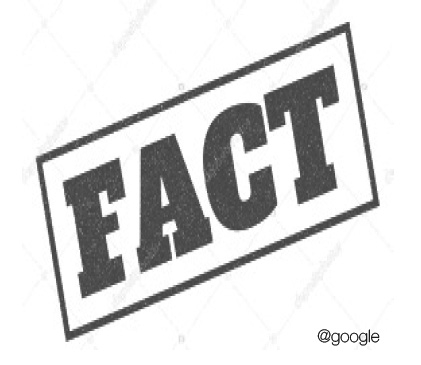There has always been a clear distinction between information providers and consumers in a traditional mass media situation. Now, an information-oriented society has begun, and the general public can perform as information providers through SNS platforms like Youtube and Facebook. However, as there are many situations where the general public has spread incorrect information, fake news has become a social problem nowadays. It’s an era when not only individuals and groups can be affected but also an entire society can be felled by a single piece of fake news. Therefore, people should learn about fake news and how it has damaged individuals and societies, and they should understand why these situations have happened, how harmful fake news is and how people can prevent fake news. -Ed.
Fake news is incendiary news not based on facts and consists of false and/or exaggerated contents that attract the public’s interest. The problems with fake news only occurred in press companies previously, but there are many platforms now where anyone can produce or redistribute information in this information-integrated society. Fake news made by the general public is becoming a real problem. As most people who read fake news are not in circumstances where they can correctly judge facts, they end up being deceived by the fake news.
The most serious problem caused by fake news is that it damages individuals and our society. A typical example of fake news damaging an individual was the ‘240 Bus Incident’ that occurred in 2017. In September of 2017, one posting on the internet reported that a kid got off a bus numbered 240 without his mother. Then, the mother begged the bus driver to stop the bus to find her kid, but the driver ignored her request and kept driving. Moreover, it said that the bus driver insulted the mother. The posting spread instantly through SNS, and journalists printed the story. Netizens who read the posting criticized the driver harshly. However, after a fact-finding report was conducted by a Seoul fact-finding commission, it was revealed that the driver was not guilty in this incident. According to the CCTV on the bus, while the mother was distracted, her kid got off the bus by himself. Later, when the mother realized that her kid got off the bus, she asked the bus driver to stop the bus. However, the bus driver judged it would be dangerous to stop when the bus was entering a multilane road, so he let the mother off at the next bus station. Moreover, the driver never insulted the mother, but the mother did insult the driver. Eventually, the bus driver was found not guilty in this case, and the mother was found guilty because she hadn’t taken care of her kid. After the fact check, the bus driver recovered his reputation. However, his hands and feet have often been paralyzed because of the psychological trauma caused by the malicious rumors about him in regards to this incident, so he decided to take time off from work. The driver posted his feelings about this incident and said that he had considered committing suicide because he was not confident enough to see his two daughters. In conclusion, a single posting which was not based on facts gave psychological trauma to a man who had worked for 25 years in his field and forced him to take a leave of absence from his work.
There was also a case that damaged Korean society by creating confusion with fake news. In August of 2018, one Youtube channel, which had about one million subscribers, posted a video titled ‘The price of rice in South Korea increased dramatically, but the price of rice and gasoline in North Korea decreased.’ In the video, the reason given for the rising price of rice was that the South Korean government sent large amounts of rice to North Korea. According to Statistics Korea, the price of 80 kilograms of rice in July of 2017 was 128,500 won, and the price of rice in July of 2018 was 177,052 won. Therefore, it was true that the price of rice had increased by 38%, which is a big percentage. However, the government sets a target price for rice every 5 years to protect the incomes of farmworkers. Although the target price between 2013 and 2017 was 188,000 won, the price had been on a downturn during this period, so the government decided to buy a large quantity of rice, and the price increased eventually. Moreover, official rice aid to North Korea started in the form of 15 million tons of rice in 1995, but it decreased to 5,000 tons in 2010, which was the last year aid was given to North Korea. The video spread through SNS, and some netizens reprimanded the government with comments such as “Not for nations but Kim Jong-eun,” and “The government cares for North Korea more than the price of rice.” As a result, the video confused the public and imposed a heavy burden on the current government.
Why have fake news items like these examples been produced consistently? There are two reasons. First, if information providers upload provocative news, even if it is not based on facts, the number of their channel’s subscribers would increase, which is directly related to advertisement profits. Second, fake news can be used for political purposes. For example, the Youtube channel which uploaded the video about the reason for the rising the price of rice has consistently made other videos that criticize the policies of the current government and blame government personnel. On this channel, however, some of the videos include exaggerated and/or false contents. As this channel has affected not only the subscribers but the public by uploading these videos, the current government has been burdened.
How can people prevent damage caused by fake news? Ahn Jong-muk, a professor of the Dept. of Media Contents in Cheongju University, said, “Education about media literacy is needed in our public education curriculum starting from an adolescent period, and advanced democracies have already implemented it. Through this education, people can learn that information might be distorted by certain political and economic authorities, and then the readers can consume the information with more insight.” Moreover, Sundar Pichai, a CEO of Google, declared a war against fake news when fake news on Youtube was emerging as a serious problem. He said that he would not only improve the algorithm but would also hire more monitoring agents to prevent the distribution of fake news on Youtube. As part of this effort, he said that the algorithm has been changed so that traditional news aired from press companies would be suggested more than videos of personal Youtube channels.
Are more laws for regulating fake news needed in Korea? According to Realmeter, a political polling site, 63.5% of Koreans replied that they are in favor of introducing laws to prevent fake news. Korean politicians have been attempting to pass legislation for preventing fake news. The opposition party made a law that made it easier to collect evidence from digital devices used in producing and distributing fake news, and the ruling party made a law that made it mandatory for Internet service providers to delete fake news. However, these laws have been criticized because the laws can be used to regulate the freedom of speech. For instance, there was a case in which the Supreme Court found it difficult to penalize fake news producers because they had exercised their right to freedom of speech. Professor Ahn said, “No advanced democracies have laws that regulate fake news because those laws can damage the freedom of speech, even if it is fake news.” However, he also said that, although he objected to introducing laws regulating fake news, regulations such as making producers of fake news liable in civil and criminal cases are needed if damages occur. Moreover, if the social climate strictly holds the fake news producers responsible, the amount of fake news would decrease gradually.
As shown in the statistics, most Koreans think fake news should be prevented. However, ironically, some of them are still unknowingly using fake information to publicly shame fellow citizens. Freedom of speech is a valuable thing that must be upheld in democratic countries. However, is it justice when someone gets hurt due to its misuse? To protect freedom of speech, the general public needs to become more aware of how it consumes information. Above all, information providers must be more aware of fake information and how it can damage individuals and society.
By Yoo Seong-woo
sw38@cbnu.ac.kr
By Ahn Min-Joo
mj40@cbnu.ac.kr


 All
All Feature
Feature






 Yoo Seong-woo&Ahn Min-Joo
Yoo Seong-woo&Ahn Min-Joo











